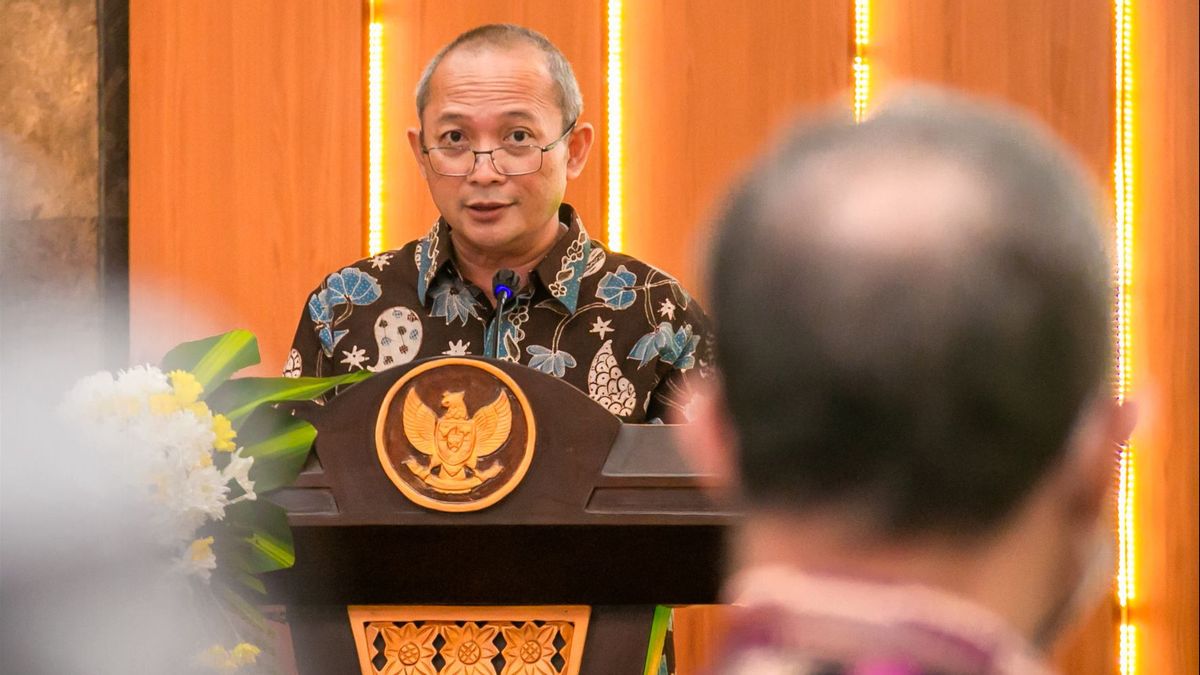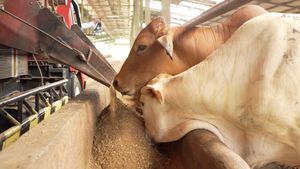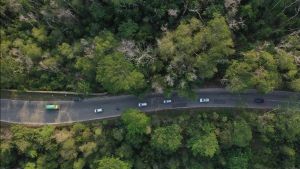JAKARTA - The Ministry of Industry is focused on implementing industrial downstream policies to increase the added value of commodities in the country, including in the agro sector.
One of the potential agro commodities in Indonesia is salak fruit, which is partly planted in the North Sulawesi region.
"The salak fruit has also been registered as a national seed due to the high demand for the domestic market, as well as the increasingly open export potential," said Head of the Standardization and Industrial Services Policy Agency (BSKJI), Doddy Rahadi in Jakarta, Wednesday, December 14.
North Sulawesi is known to have two salak varieties, namely the zalacca variety which grows a lot on the islands of Tagulandang, Sangihe and Talaud. Then, the amboinensis variety that is often found in Pangu Village, Southeast Minahasa.
Among the two varieties, Salak Pangu has advantages over other types of salak, namely sweet and savory taste.
This characteristic is influenced by high sugar content by 23.30 percent and relatively small composition of tannins, which is 0.08 percent.
"However, salak fruit has a easily damaged nature. In addition, if it is separated from its sign, salak fruit cannot be stored for long. This is a problem when the harvest period arrives, where the amount of salak is abundant, but cannot be distributed immediately," said Doddy.
During the harvest period, salak trees are known to be harvested twice a month and each hectare of salak plantations can produce 600-1,000 kg of salak.
According to data from the Agricultural, Agriculture and Forestry Extension Center (BP3K) of East Ratahan District, in the Pangu area, there are 553,000 productive salak trees.
Total production of salak fruit from Southeast Minahasa was recorded at 32,000 tons in 2020.
During this harvest period, the price of salak in the market will decrease from the normal price of Rp. 10,000 to Rp. 3,000 per kg.
"This is certainly a big problem for salak farmers in the Pangu area. Therefore, the Manado Standardization and Industrial Services Center (BSPJI) is trying to find a solution by introducing salak fruit processing technology into dodol salak food products," said Doddy.
Meanwhile, in an effort to introduce the results of the technological innovation, the Head of BSPJI Manado, Henry Pajow, said that his party was working with UD Mandiri as a partner in the application of dodol salak processing technology.
"Initially, salak fruit processed into dodol only came from UD Mandiri's garden. After the product became known and demand went up, UD Mandiri began to take salak fruit from gardens around Pangu Village. Dodol products that had become packaged in plastic packages and also traditional packaging of woka leaves (leaves)," he explained.
To meet market needs that continue to increase from time to time, both the local market of North Sulawesi and outside North Sulawesi, in a month UD Mandiri produces around 400 packs of dodol ready to sell.
Responding to this, the owner of UD Mandiri, Artje Sengkey, said that his party produces three productions each month.
"Dalam setiap bulannya, kami biasanya tiga kali berproduksi, yang hasilnya berkisar 400 pak dodol. Jumlah tersebut cukup memenuhi kebutuhan pasar saat ini," ujarnya.
Assuming 400 packs are sold per month, turnover can reach IDR 4 million. To produce that much dodol, 50 kg of salak fruit is needed.
If sold freshly, 50 kg of salak fruit is only valued at Rp. 400 thousand. This figure shows how increased the economic value of salak fruit after being processed into dodol.
MDol salak UD Mandiri products can be found in souvenir shops in Southeast Minahasa and Manado, as well as in several online stores.
Currently, the dodol salak produced by UD Mandiri has been known as a typical souvenir from North Sulawesi.
Each dodol salak weighing 130 grams, is sold at a price of IDR 10,000. This is certainly much more profitable, when compared to the price of fresh salak fruit.
"We are only small entrepreneurs in the regions, therefore, we are proud that our product products can be purchased by many people, including tourists from abroad. In fact, our production dol has also been marketed outside the North Sulawesi area and is quite in demand," said Artje.
The English, Chinese, Japanese, Arabic, and French versions are automatically generated by the AI. So there may still be inaccuracies in translating, please always see Indonesian as our main language. (system supported by DigitalSiber.id)













